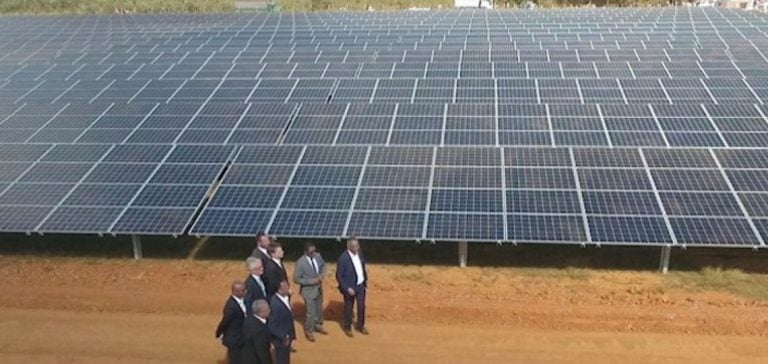Madagascar is facing increased energy pressure.
With a growing population and accelerating industrialization, demand for electricity is exploding.
At present, the country relies heavily on thermal power plants, mainly using fossil fuels, a situation that is unsustainable from both an economic and a technical point of view.
The Malagasy government, under the aegis of the President of the Republic, is moving towards a strategy of diversifying energy sources, giving priority to renewable energies. The aim is to triple the country’s energy capacity over the next few years, drawing on abundant resources such as solar and hydroelectric power.
Current projects include the installation of 50 MW of solar panels in 47 districts across the country.
This program, already underway, is the first step in a larger strategy.
The government plans to reach 600 MW of installed solar capacity, thus strengthening the country’s energy resilience.
Exploiting under-utilized hydroelectric potential
In addition to solar energy, Madagascar has significant hydroelectric potential, estimated at over 7,800 MW, but largely under-exploited to date.
By capitalizing on this natural resource, the country intends to increase its energy independence while reducing its dependence on fossil fuel imports, which are particularly costly for the national economy.
The development of new hydroelectric infrastructure is intended to diversify the energy mix and stabilize electricity supply, particularly in rural areas that are still poorly served by the current grid.
This strategy of investing in hydropower also represents an opportunity to attract foreign capital.
The sector is seen as a profitable option for investors looking to support long-term projects, with predictable returns on infrastructure.
This policy aims to bridge the chronic energy deficit while stimulating development in regions less connected to the grid.
International support and financing
The Malagasy government is well aware of the scale of investment required to complete this energy transition.
It is therefore calling on the international community and private investors to help finance these projects.
At the recent General Meeting of Africa50, an institution specializing in infrastructure, the President of the Republic stressed the need for solid partnerships with international players, in particular to obtain financing on advantageous terms.
The support of international financial institutions is crucial to the realization of these projects, both in terms of concessional loans and risk guarantees.
One of the major challenges lies in accessing funds to modernize energy infrastructures and accelerate the deployment of new production capacities.
Partnerships with international entities and private lenders are therefore essential to ensure the economic viability of the energy program.
Infrastructure optimization and challenges
Alongside the construction of new infrastructures, the modernization of existing equipment is a priority.
Many facilities, particularly thermal ones, suffer from obsolescence, leading to significant losses in efficiency and high maintenance costs.
The government is therefore planning targeted investments to improve the performance of the national power grid and reduce service interruptions, which are frequent in some parts of the country.
The development of renewable energies, while promising, also raises technical, logistical and economic challenges.
These include the need to develop storage capacity to compensate for the intermittent nature of solar and hydroelectric production.
Without adequate storage solutions, the energy transition could be slowed down.
In addition, strengthening the regulatory framework is essential to ensure the transparency and security of investments in the energy sector, an area where Madagascar still needs to make progress.






















